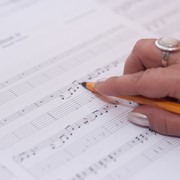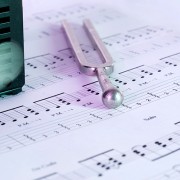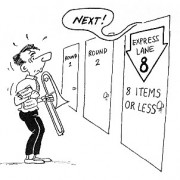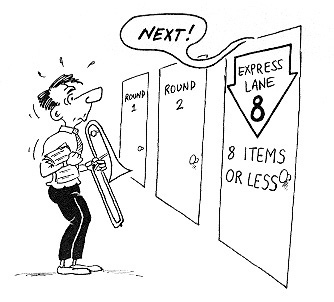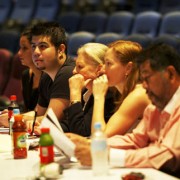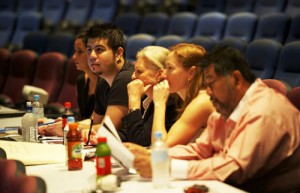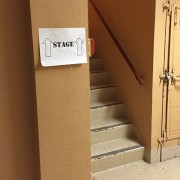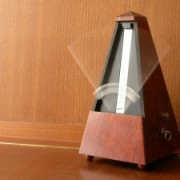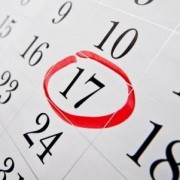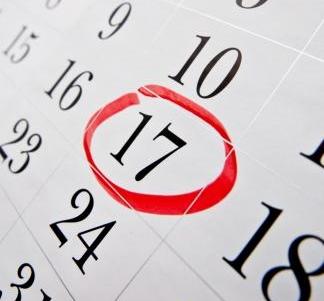Preparing for Auditions (How to practice)
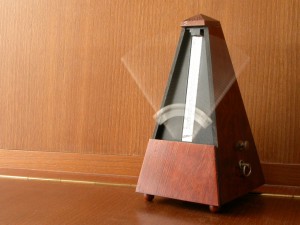
1) Use a metronome!
I know, I know: it’s so painful to use a metronome, but a metronome is one of the most important tools for helping you prepare for auditions. Having accurate rhythm is so crucial to wining an audition. Being unsteady in an audition is the fastest way to get knocked out.
OK, how to use a metronome
Don’t just turn it on to keep you company, like your grandmother who turns on the tea kettle to keep her company…use it!
• Start off very slow until you know all the rhythms and notes, and gradually increase.
• Practice with different subdivisions, and macro beats. (i.e. put it on 16th notes, 8th notes-1 beat per bar, 1 beat per 2 bars etc)
• Practice with the beat not on the down-beat. This works well on Scherzi such as Mendelssohn’s midsummernight, Schumann, Beethoven 9 etc.
• Record your excerpts with the metronome running and volume on. Listen for where you rush, or are late against the metronome.
2) Record yourself. Listen to yourself. Make Changes.
You are your biggest critic, and you can make the most change in your playing. Of course it really helps to have a teacher who will point out things you don’t hear, but if you don’t have a good teacher, or are just in between lessons Record yourself. Recording myself is usually not the problem, I’m very good at recording myself and letting it sit on my device. It’s very easy to fall into the mindset of: I only have this much time to practice, and so I need to use all that time playing the instrument. False! The point of practicing is to improve, and if you repeating mistakes that you can’t hear, you are doing more harm than good.
Listen and Make Changes
This is where it gets hard. Listening to the recording you just made is so eye-opening, and often disappointing. You’ll inevitably hear things you don’t like, or be shocked that what you hear under your ear is not what people are hearing across the room. You’re a musician, you’ll never be completely happy with how you sound, that’s just how it is. You’re not alone. Don’t dwell on the negatives, or tell yourself that you suck, or relegate yourself to teaching snotty little children who don’t appreciate your talent or your efforts-figure out what it is you need to change, and work on making that change! Bravo to you for recognizing that you can be better, and knowing how to get there.
Wash, Rinse, Repeat.
Listen to the same recording a few times, and listen for different things. Here are some possibilities of different things to listen for.
• The first pass, listen for rhythmic accuracy.
• The second pass, listen for dynamics.
• The third pass, listen for intonation.
Recording yourself is especially helpful the closer to the audition that you get, when you are more prepared and can be more specific about what needs to improve. However, the more you do it, the more you’ll improve.
3) Play along with recordings.
If you haven’t played the excerpts in their original context, (that is: in an orchestra) playing along to a recording can be extremely beneficial. If you’ve been practicing the excerpts by yourself, playing with the track can really put things back in perspective. Often when you start practicing by yourself again, you’ll be able to hear the other instruments playing in your head. And that’s exactly what you want.
A couple small suggestions when you’re attempting this:
• Try to get the volume loud enough, so no playing along with your laptop speakers: make it comparable to actually being in an orchestra. If you can get the volume on your stereo loud enough, you should be able to play normally and still hear everything going on.
• Tune your instrument to the track. This may be difficult if the excerpt is in 5 flats, you may have to tune it to a different part of the piece. Also Euopean orchestras tune much sharper than American orchestras, sometimes as high as A=445, so take that into account.
4) Play for other people
After you’ve been practicing and recording yourself for a while. Go play your list of excerpts for other people. If you can find musician colleagues to listen to you and give some feedback, excellent! If you only have non-musician friends around, play for them too and get some of your nerves out.
If you are planning on taking a lesson from a prestigious teacher don’t wait until it’s too close to the audition. You don’t want someone to tell you to change everything you’re doing a couple of days before the audition. It’d be better to go earlier even if you don’t feel ready (remember, you’ll never feel completely ready). You need some time to practice and be comfortable with new bowings or fingerings, otherwise when the pressure of the audition is on, you’ll revert back to your old method, or some strange combination of the two.
5) Simulate the audition conditions
One of the biggest difference between people who win auditions and those who don’t is experience. The more of them you take, the more comfortable you will become with the whole process. But that’s not going to help you with this audition that you are preparing for right now; what you need to do is practice taking auditions.
First of all, an audition is a very bizarre and unnatural situation. I mean, when else in life are you going perform for only a couple of people who cannot see you, and play 2 minutes of a concerto, 30 seconds of Mozart, 35 seconds of Brahms, and 30 seconds of Strauss? (Maybe a recital for blind people with A.D.D?) The point is, you need to practice simulating this strange situation.
Replicating all the conditions of an audition probably isn’t possible, at least not without some serious creativity and some accommodating friends. But if you can simulate a few of the common occurrences at auditions, you’ll be that much more prepared.
• Wear the clothes you’re going to wear on the audition day. If the audition is blind, this isn’t that big of a deal, as you can wear your bright orange sweat pants if you really want. But if you know the panel will see you, make sure you know what it’s like playing in your dress clothes, shoes etc.
• Recruit some friends or family to listen to you. Pretend they are the jury panel and have them call out excerpts in any order.
• Play behind a screen. This is where your creativity comes into play, pin a sheet to the ceiling, or drape it between two floor lamps. If you’ve never taken an audition before, playing behind a screen is more unusual than you’d think.
• Simulate being nervous by running up a flight of stairs before you start. This will get your heart beating a little faster than normal. (one flight is all it takes for me, if you’re really in-shape, repeat as needed).
• Adjust the temperature in the room. Do your hands get cold while playing? Do they get sweaty? Practice playing in those conditions, and they won’t be distracting on the day when it counts.
• Play through the repertoire-no stopping, no talking. If you have a large list of excerpts, consider holding multiple rounds.
• Have your friends ask for different interpretations: Sometimes the panel will ask for strange things-passages more off the string, more on the string, different tempi, dynamics, while standing on one foot and reciting the alphabet-who knows? Conductors often want to find someone who can change things on the spot.
• Have a friend conduct while you play. This can happen in an audition, so make sure you know those excerpts well enough to watch.



